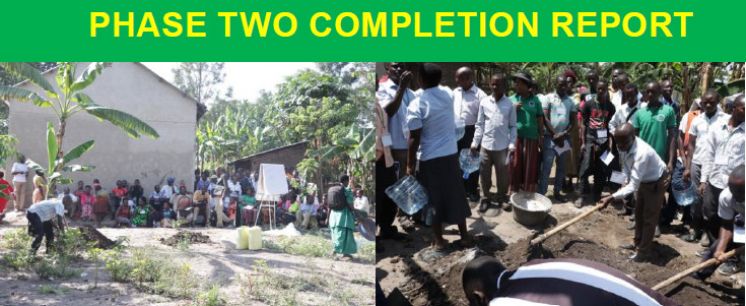Malku Institute of Technology (MIT) entered into an understanding with the Africa Institute for Strategic Resource Services and Development (AFRISA) to address the issue of rural development. The partnership between MIT and AFRISA intended to bridge the skills and knowledge gap through the motivation and skilling of the participants.
AFRISA and MIT designed a joint project Household Economic Empowerment Project -HEEP) to appropriate their partnership. HEEP was designed to address issues of income insecurity (unemployment & underemployment) and food insecurity; targeting 100 beneficiaries in the targeted community in Mubende district.
Malku Institute of Technology (MIT) is an International Institution whose goal is to improve the level of rural youth employment and national security across African countries. MIT focuses on the achievement of sustainable rural development through; (1) comprehensive agricultural training program (CATP), and (2) Agro- Packs for sustainable Youth enterprise development.
Both AFRISA and Malku Institute of Technology (MIT) partnered together so to address Africa’s development challenges particularly those related to rural communities. Both parties are set out to jointly implement the “Household Economic Empowerment Project (HEEP)’. The Household Economic Empowerment Project (HEEP) was designed by the Africa Institute for Strategic Resource Service and Development (AFRISA) in partnership with Malku Institute of Technology (MIT). The project was designed to address issues of income insecurity (unemployment & underemployment) and food insecurity in the targeted communities of Mubende District.
The HEEP project was designed to be implemented in four phases, and these are: (1) Mobilization, Sensitization, recruitment & Training Needs Assessment; (2) Knowledge Transfer & Commissioning; (3) Enterprise Establishment & Nurturing; and (4) Assessment & Accreditation. So far, phase one was successfully accomplished. In March 2019, the implementer embarked on phase two activities (Knowledge transfer and Commissioning); as detailed herein.

